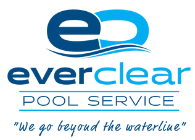While many pool owners manage basic upkeep themselves, professional pool cleaning is an essential service to ensure deeper maintenance, prevent costly repairs, and preserve the water’s health. Understanding how often to schedule professional cleanings can help you strike the right balance between personal care and expert intervention.
Why Professional Pool Cleaning Matters
 A professional pool cleaning goes beyond skimming the surface and adding chlorine. Pool cleaning experts use specialized tools and techniques to:
A professional pool cleaning goes beyond skimming the surface and adding chlorine. Pool cleaning experts use specialized tools and techniques to:
- Maintain Water Quality: Professionals test and balance the water’s chemical levels to ensure safety and clarity. Imbalanced chemicals can cause skin irritation, algae growth, or corrosion of pool equipment.
- Deep Clean the Pool: Debris, dirt, and algae can settle in areas that are difficult to reach with standard tools. Professional cleaners tackle these areas to maintain hygiene and appearance.
- Extend Equipment Lifespan: Pumps, filters, and heaters require regular maintenance to function efficiently. Professionals can inspect and service this equipment to prevent damage or failure.
- Prevent Costly Repairs: Routine inspections during cleanings can detect early signs of wear or damage, saving you from expensive repairs down the line.
Factors That Determine Cleaning Frequency
The frequency of professional pool cleanings depends on several factors unique to each pool:
- Pool Usage
Pools that are heavily used, especially during summer or by multiple people, accumulate contaminants like sweat, oils, and sunscreen faster. High-traffic pools typically require more frequent professional attention to maintain water clarity and hygiene.
- Environmental Factors
Pools located near trees, gardens, or windy areas collect more leaves, dirt, and debris, which can clog filters and disrupt chemical balance. These pools may benefit from more regular professional cleanings to address the added debris load.
- Pool Type
The design and material your pool can also affect its cleaning requirements. For instance, saltwater pools require specific maintenance compared to traditional chlorine pools. Similarly, pools with intricate designs or additional features like waterfalls may demand more specialized care.
- DIY Maintenance Habits
If you consistently skim, vacuum, and monitor chemical levels on your own, you may be able to reduce the frequency of professional cleanings. However, relying solely on DIY efforts may not address deeper maintenance needs.
General Guidelines for Professional Pool Cleaning
- Residential Pools: For most residential pools, professional cleaning every 2-4 weeks is sufficient when paired with regular owner-led maintenance. This frequency ensures that hard-to-reach spots are cleaned, chemical levels are expertly balanced, and equipment is inspected for potential issues.
- Commercial Pools: Commercial pools, such as those in gyms, hotels, or apartment complexes, experience higher usage and stricter hygiene requirements. These pools typically require weekly professional cleanings to maintain compliance with health and safety regulations.
Seasonal Considerations
The time of year also plays a role in determining cleaning frequency:
- Summer: During peak swimming season, pools often require biweekly professional cleanings due to increased usage and faster algae growth.
- Winter: If your pool is not in use and is covered, professional cleanings can often be reduced to once every 4-6 weeks or even less, depending on environmental conditions.
Signs You Need a Professional Cleaning
Even if you follow a schedule, certain signs indicate the need for immediate professional cleaning:
- Persistent Algae Growth
If algae keeps returning despite regular chemical treatments, a deep cleaning may be necessary to remove it from hidden crevices or equipment. - Cloudy or Discolored Water
When the water remains cloudy or murky despite chemical adjustments, it’s time for professional intervention to restore clarity. - Unpleasant Odors
Strong odors, especially from chlorine, may indicate an imbalance in the water’s chemistry that requires expert rebalancing. - Inefficient Equipment
If your filter, pump, or heater isn’t working as it should, a professional can clean and service the equipment to restore functionality.
Maximizing the Benefits of Professional Cleaning
While professional cleanings are crucial, combining them with regular DIY maintenance will keep your pool in top condition year-round. Here are some tips:
- Skim Regularly: Remove leaves, bugs, and debris from the surface daily or as needed.
- Check Chemical Levels Weekly: Use a pool testing kit to monitor chlorine, pH, and alkalinity levels.
- Brush and Vacuum: Clean the walls, floor, and steps of your pool weekly to prevent algae buildup.
- Clean the Filter: Backwash or clean your filter system as recommended to maintain water circulation.
By staying on top of basic maintenance, you’ll not only enhance the effectiveness of professional cleanings but also extend the life of your pool and its equipment.
Professional pool cleaning is an essential part of pool maintenance, ensuring water quality, safety, and equipment longevity. For most residential pools, scheduling a professional cleaning every 2-4 weeks works well, while commercial pools require weekly attention. However, factors like usage, environment, and seasonality can affect these guidelines. By recognizing the signs that your pool needs extra care and complementing professional cleanings with regular DIY efforts, you can enjoy a pristine and inviting pool throughout the year.
